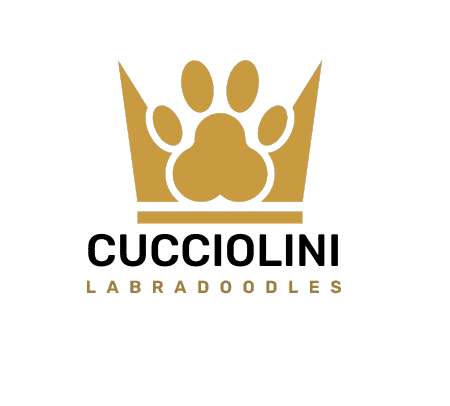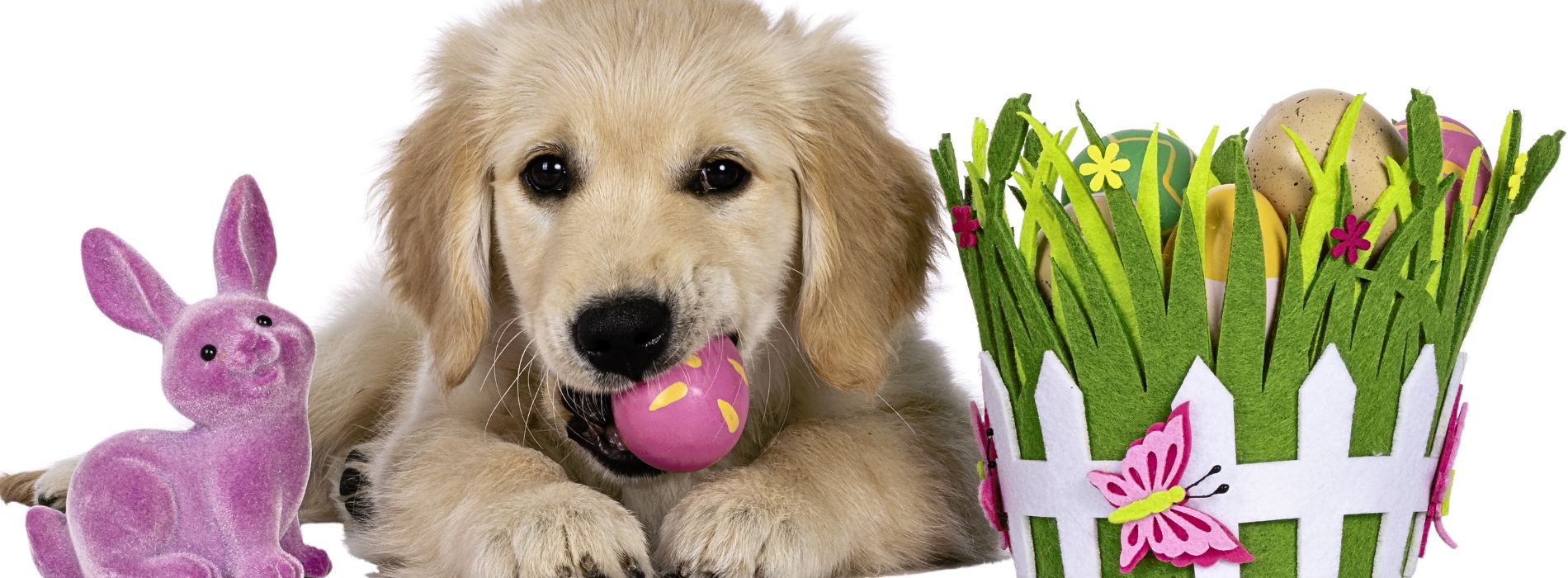Embrace the joyous Easter season with your beloved furry friends by ensuring their safety and well-being during this festive time. Cherish every moment with your pets as you create unforgettable memories while celebrating Easter’s spirit. Let us join hands in ensuring that our precious pets are included in the festivities, keeping them happy, healthy, and safe throughout this time of year.
As the Easter season approaches, it’s important to remember that while this festive time brings joy and excitement for many, it can also pose potential dangers to our furry friends. Our pets rely on us to keep them safe, and by being aware of the hazards associated with Easter celebrations, we can ensure their well-being throughout this holiday. Let’s explore some essential tips to help you create a pet-friendly Easter environment.
Mindful Treats and Foods
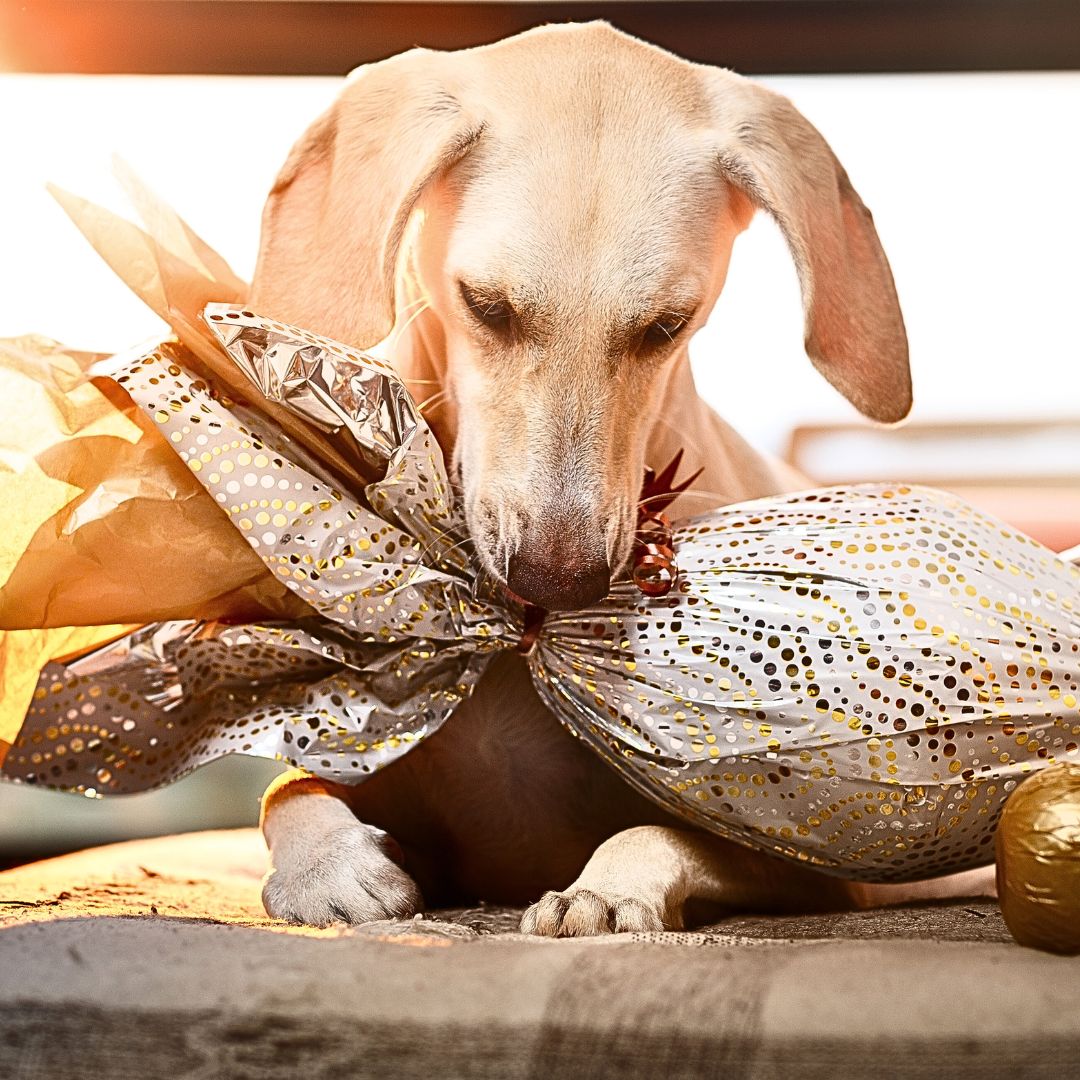
Easter treats are undoubtedly tempting, but keeping them out of reach from curious pets is crucial. Chocolate, in particular, can be toxic to both dogs and cats. Ensure all chocolate goodies are stored securely in high cabinets or closed containers. Instead of sharing human treats, opt for pet-friendly alternatives that are safe and specifically made for animals.
Decorations and Eggs
Easter decorations may add a festive touch to your home but can also pose risks to your pets. Watch for small decorations, such as plastic eggs or ornaments, that can be easily swallowed or cause choking hazards. If you’re planning an Easter egg hunt, ensure all eggs are accounted for afterward to prevent your pets from accidentally ingesting them.
Plants and Flowers
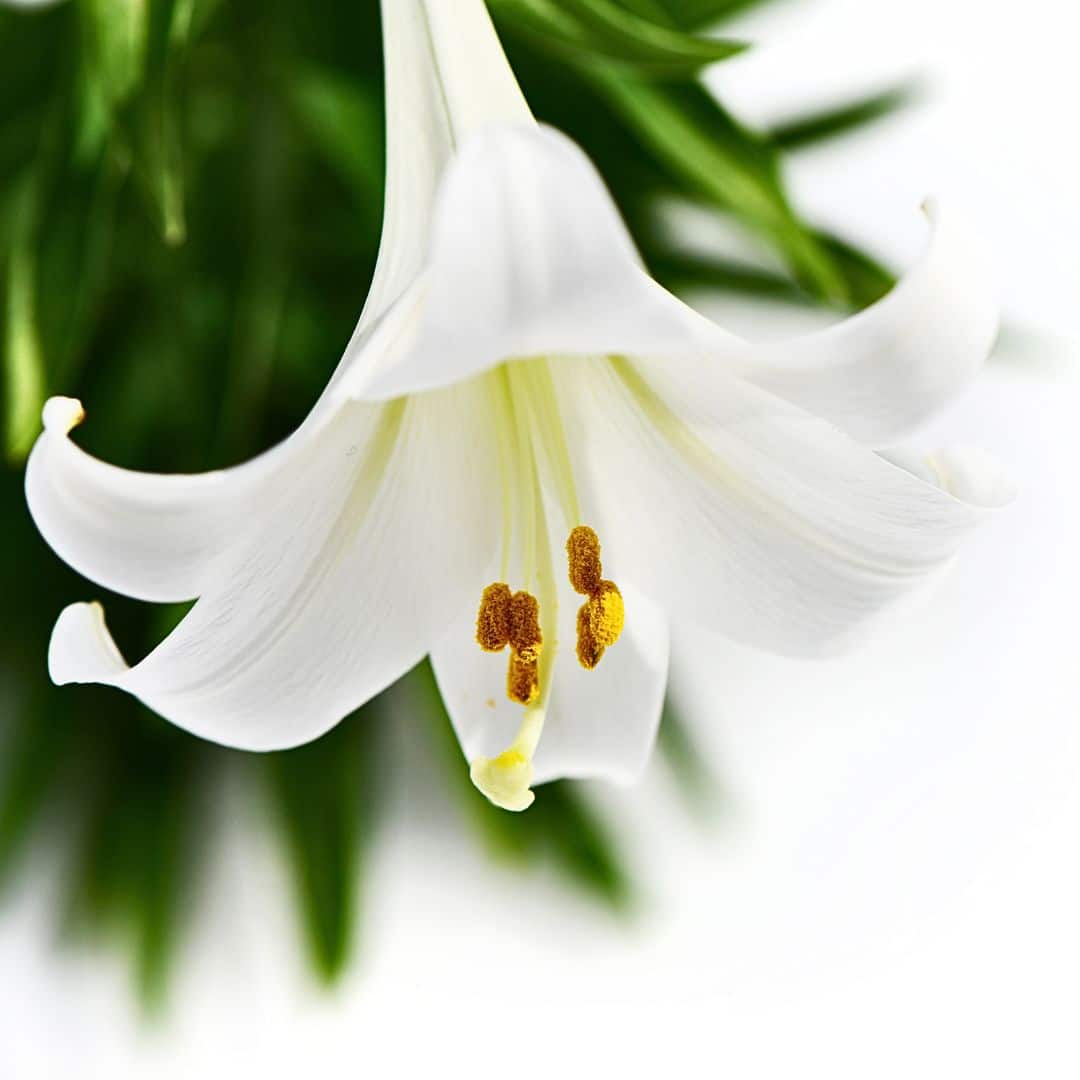
Many households decorate with beautiful spring flowers during Easter, but some plants can be toxic to pets if ingested. Lilies, daffodils, tulips, and hyacinths are just a few flowers that can cause serious health issues for our furry companions. To ensure your pet’s safety, research pet-friendly alternatives or consider placing these flowers in inaccessible areas.
Extra Attention and Exercise
With the hustle and bustle of Easter celebrations, it’s easy to overlook our pets’ need for attention and exercise. Make sure to carve out quality time for your furry friend, providing them with mental stimulation and physical activity. A well-exercised pet is less likely to get into mischief or be tempted by potential hazards.
Quiet Retreats
Easter gatherings can become overwhelming for pets, especially if they are not used to large crowds or noise. Create a quiet retreat where your pet can retreat if they feel anxious or overwhelmed. Please provide them with a cozy space, away from the commotion, filled with familiar toys and bedding to help them feel safe and secure.
Easter holidays and Spring emerge in Canada.
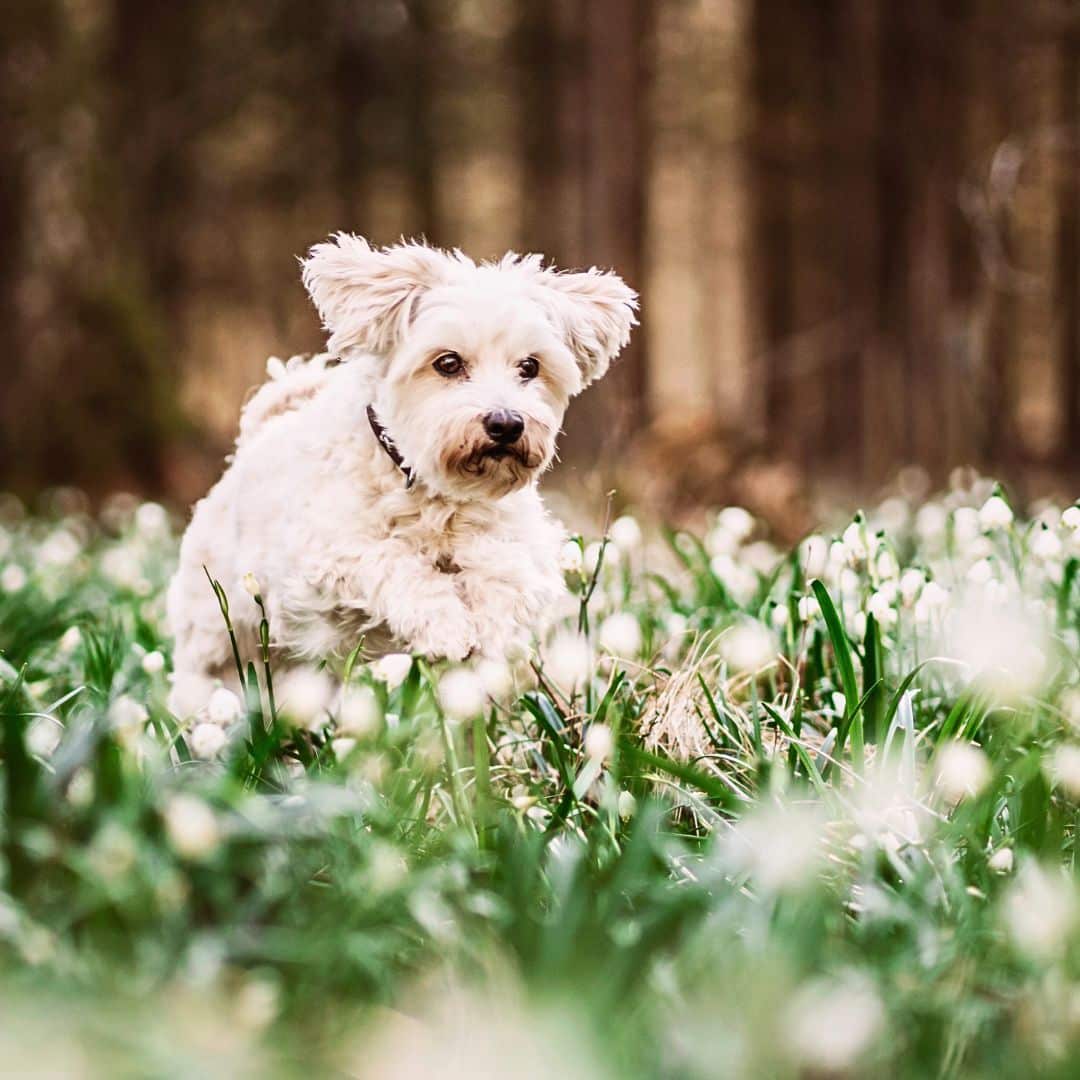
As the weather transitions for the Easter holidays and Spring emerges in Canada, the anticipation of indulging in delectable foods, revealing blooming flowers, and partaking in festivities grows. Yet, amidst this excitement, it remains crucial to remember that treats suitable for us can pose serious risks to our pets and animals, potentially leading to severe and even fatal illnesses.
Here, we offer guidance on identifying toxic foods and plants, underscoring the significance of safeguarding your pets’ health and well-being. Being vigilant around harmful substances is paramount, especially during this season when various toxic foods abound. Moreover, educating young children about the rules to prevent dropped candies or discarded wrappers from becoming hazards for our four-legged companions is essential.
Serving Desserts
Keeping desserts securely on the table is essential, out of reach for curious canines. Chocolate poses high toxicity to dogs, and candies containing artificial sweeteners like xylitol can also harm their health.
Remaining vigilant is key, as your dog might manage to snatch a piece of chocolate. Suppose you observe symptoms like stomach discomfort, digestive problems, or behavioural changes. In that case, you must promptly contact your veterinarian for immediate assistance.
Chocolate can have different effects on dogs.
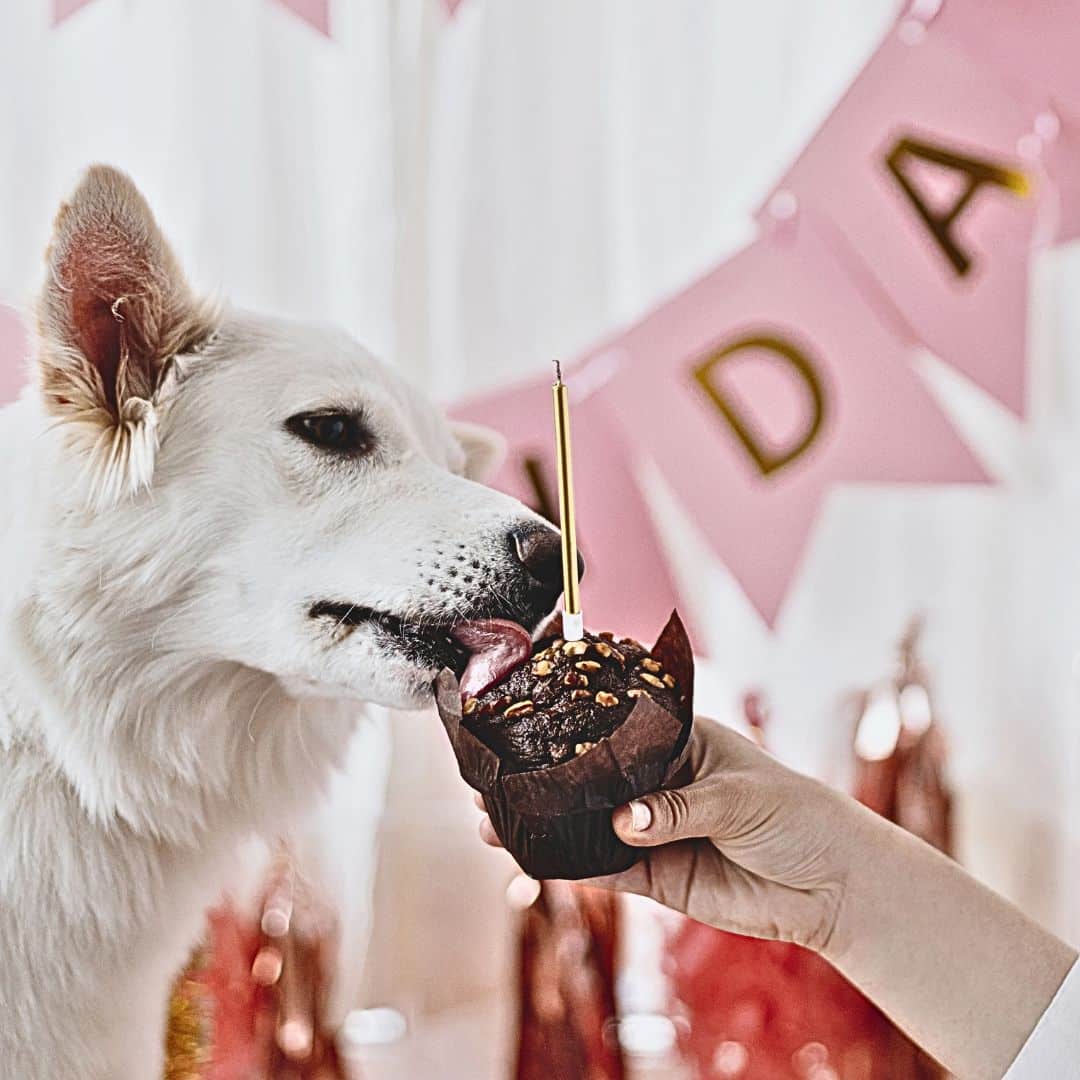
The impact of chocolate consumption differs between large and small dogs. A small amount of chocolate might have a milder effect on a large dog than a small dog. According to The Kennel Club, the resources tell us that the size of the dog and the quantity of chocolate ingested both play crucial roles in potential issues.
However, it’s not solely the amount of chocolate that’s concerning; the type of chocolate matters, too. Dark chocolate, containing a more concentrated form of theobromine than milk chocolate, should be avoided. Theo-bromine, akin to caffeine, is toxic for pets. Minimizing the intake of these toxins is of utmost importance.
Alcohol & Caffeine
At Easter gatherings, people often partake in coffee or wine. However, it’s vital to keep all alcoholic and caffeinated beverages far from dogs. Puppies might be drawn to the sweetness of these drinks. Still, alcohol, caffeine, sugar, or artificial sweeteners can rapidly result in sickness and necessitate immediate veterinary attention.
Bones are very Dangerous, so keep Pets Safe on Easter.
When serving dishes containing bones, ensure prompt disposal. If children are present, prevent dogs from snatching bones off their plates unnoticed.
Cooked bones can fragment into sharp pieces, causing harm to the esophagus and internally. Bones pose a choking risk to dogs.
While offering table scraps might be acceptable for most vegetables or proteins, avoiding all bones is crucial, as they can splinter and lodge in the throat. Exercise great caution, checking for any dropped items on the floor.
For sharing Easter foods with your dog, opt for safe alternatives designed for dogs.
Anxiety in Dogs
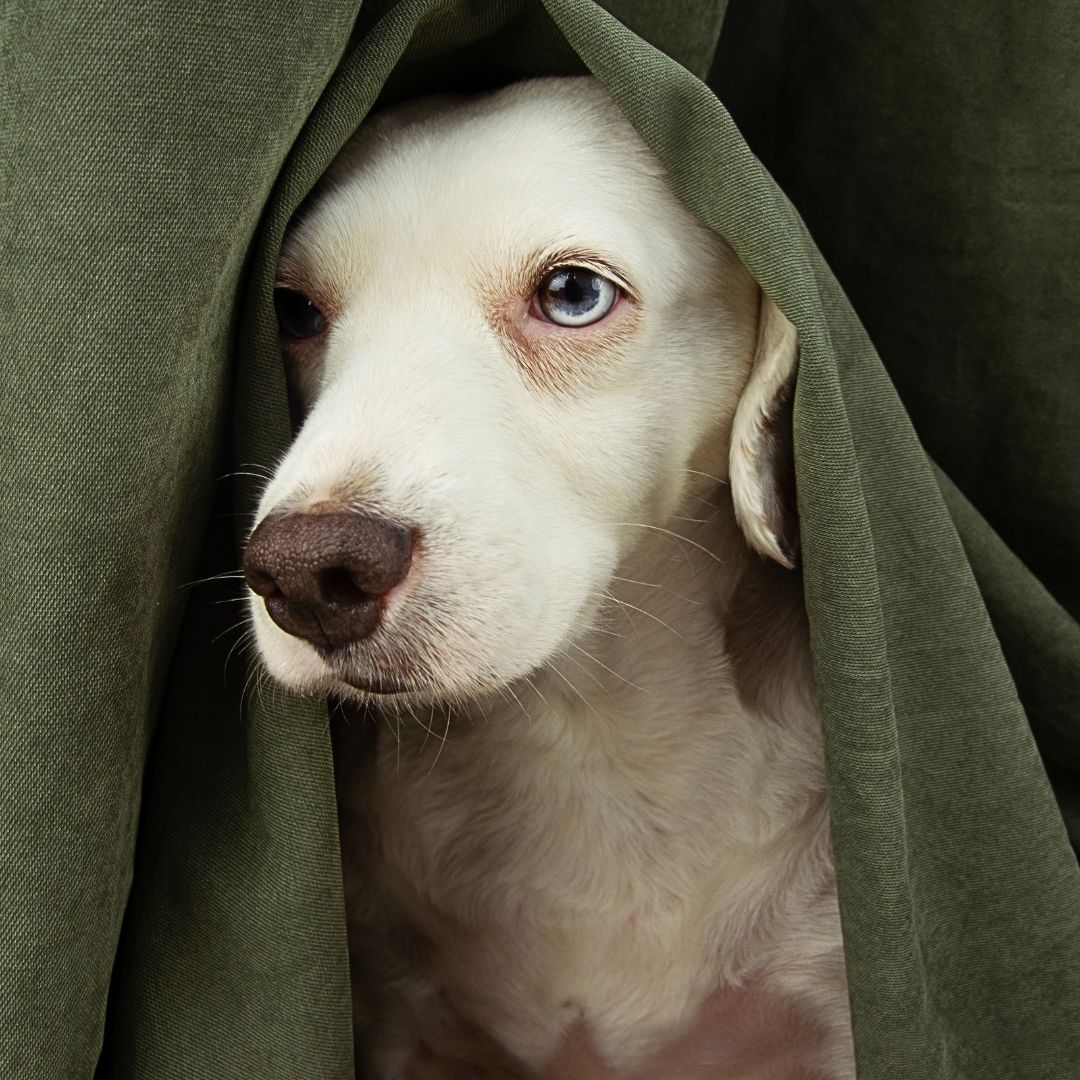
According to research by The Kennel Club, frequent doorbell ringing and movement can trigger anxiety in dogs uncomfortable with crowds when visitors arrive.
Unfamiliar faces and scents entering the dog’s territory can induce fear and lead to agitated behaviour, even bolting out of an open door.
In anticipation of Easter, consider initiating guest-familiarization training for your dog, gradually introducing them to the gathering to promote comfort.
Guests & Door Bells can be Frightening.
To maintain your dog’s composure during doorbell rings or guest arrivals, initiate training a few days prior. Teach commands like sit or stay, and use treats to reinforce good behaviour.
Throughout Easter celebrations, ensure outside doors remain shut when not in use. Instruct guests to close doors behind them and avoid leaving them open for the dog’s safety. Reward the dog with treats for remaining calm in the presence of guests.
For highly anxious dogs, consider placing them in a separate room with a radio to distract them from the noise. To ease discomfort around crowds, provide a relaxing space with cherished toys or a cozy bed. Regularly check on your dog, ensuring access to water and food, to ensure their contentment during Easter festivities.
Keep the trash secure.
As Easter approaches, lavish feasts are expected, leading to food waste that could tempt dogs and outdoor animals due to the appealing aroma.
Discard Easter grass and wrappers properly to prevent dogs from ingesting them, which may lead to digestive issues.
Safeguard the trash by positioning it under the kitchen sink, out of reach for dogs. Opt for trash cans with secure lids will prevent animals from accessing and causing a mess, especially if the trash is within reach of dogs.
Secure waste from access to dogs
Dispose of leftover foods promptly or store them out of reach of dogs and other animals. While Easter foods may excite dogs, they can also be harmful. Ensuring your pets’ safety is paramount.
Numerous foods are toxic to dogs, including grapes, raisins, nuts, chocolates, grease, and salty/fatty items that can lead to digestive issues or severe problems if consumed excessively. Contact a vet immediately if you notice unusual symptoms in your dog—such as behavioural changes, sudden appetite loss, repeated vomiting, or diarrhea.
It’s crucial to be attentive to your dog’s discomfort. Don’t rely solely on guests to notice unusual or unhealthy behaviour. Pet owners should be familiar with their dog’s habits, reactions to people, and signs of illness.
Consider natural daily dental dog chews for safer Easter treats, a great option as doggy Easter Basket fillers.
Toys and plastic Eggs Can Be Dangerous.
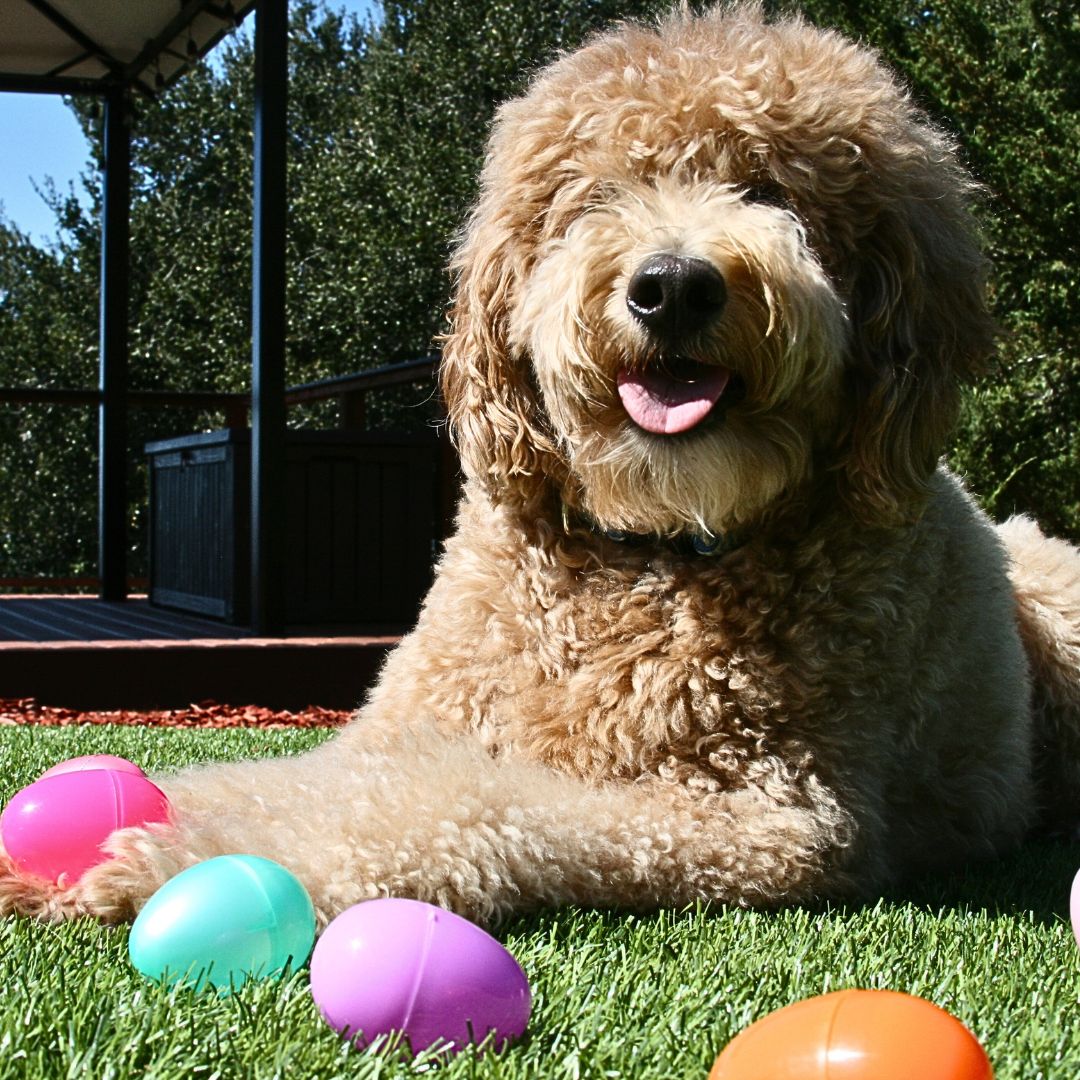
When preparing Easter baskets for your children, remember that several items can pose risks to your dog. Small objects that could cause choking can fragment into sharp parts, potentially leading to internal harm, including blockages in the gastrointestinal tract. After kids are done playing with Easter toys, it’s advisable to store them away.
Keeping your Pets safe
Ensuring the safety of your pets during Easter egg festivities is of utmost importance. Dogs’ curiosity might lead them to chew on or play with Plastic Easter eggs. Remove the contents once your dog discovers an egg, and keep the plastic shell under your supervision. Don’t miss out on a joyful dog Easter egg hunt. Monitor your dog’s well-being and enjoyment to prevent any illness. Additionally, you can hide real eggs for your dog to find. Consider incorporating hard-boiled eggs, as they are both safe and nutritious.
Pet Safety During Easter
Q1: Are Easter lilies safe for pets?
No, Easter lilies are highly toxic to pets. Ingesting the plant can cause kidney failure in pets, especially cats. Choose pet-friendly decorations instead.
Q2: Can pets eat chocolate treats during Easter?
No, chocolate contains substances like theobromine that are toxic to pets. Keep all chocolate treats out of reach to avoid potential poisoning.
Q3: How can I prevent my pet from accessing Easter baskets?
Place Easter baskets and goodies in a secure location, away from your pets’ reach. Avoid using plastic grass or small items that can be swallowed.
Q4: Are there safe alternatives for Easter egg hunts with pets?
Yes, use pet-friendly treats or toys instead of real eggs. Hide them in a safe area and supervise your pets while they hunt to ensure they don’t consume anything harmful.
Conclusion: Ensuring a Happy and Safe Easter for Your Beloved Pets
In conclusion, extra precautions can ensure your beloved pets a happy and safe Easter. Remember to keep chocolate, Easter lilies, and other toxic substances out of their reach. Please provide them a quiet, secure space to retreat during family gatherings or noisy egg hunts. Consider using pet-friendly decorations and avoiding small, easily ingested items that could pose a choking hazard. Lastly, be mindful of the added stress that holidays can bring and give your pets plenty of love, attention, and exercise to keep them calm and content. Following these guidelines, you can enjoy a wonderful Easter celebration while keeping your furry friends safe and happy.
